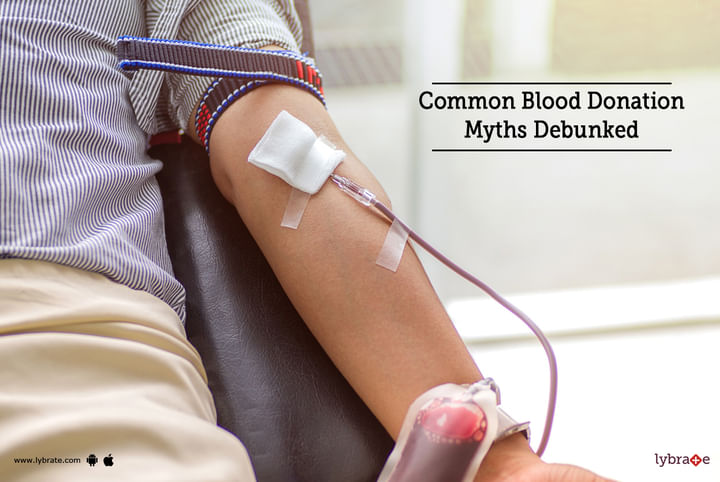Common Blood Donation Myths Debunked!
Blood supply is in urgent need in every country. Its shortage can claim lives. We need more people to come forward and donate blood. One reason many people are reluctant to do it is that certain misconceptions surround blood donation. Unless these myths are dispelled, people will perish because they could not access life-giving blood.
Myth 1: I might catch a disease if I donate blood
This is a very common misconception. People who are not familiar with the blood donation procedure latch on to this idea. Blood donation is done in a disinfected environment. Every piece of equipment is sterilized. Needles that are inserted in your arm are unused, the seal will be broken in front of you. Once you have donated blood, it will be disposed of. So there is no scope of you catching any blood-borne illness.
Myth 2: My blood type is not needed
Every Blood Group is in equal demand. When there is a shortage of blood, blood banks need donations from all member of the ABO group. Even if you are O+ or A+, which are the most common groups, you should step up and donate. O group is especially coveted because it can help all other blood groups.
And if you have a rare blood group, then too you should donate blood because there aren’t many donors of your group.
Myth 3: I’m too young or too old for donating blood
True, there is a fixed age group that can donate blood. The World Health Organization has mandated that only people in the 18-65 age bracket can sign up for blood donation. So if you are over 18, you are not too young to give blood. Similarly, you can safely continue to donate blood until you reach 65 years of age.
Myth 4: I can’t donate blood because I have been diagnosed with an illness
This is another very common misconception. People believe that they cannot donate blood if they have-
- Diabetes
- High blood pressure
- Experienced a stroke
- Been taking medication for any cardiovascular illness
If your diabetes and high blood pressure are under control, then you can donate blood without any worry. If you are taking medicines for cardiovascular illnesses, it should not stop you from donating blood, but still, consult your doctor first.
If a year has passed since your stroke and you have been taken off medication, you can donate blood.
If you recently got your ears pierced or a tattoo, you can donate blood as long as it was done in a licensed store or beauty salon. You can’t donate blood if you developed an infection after the piercing or tattoo.
Myth 5: I am a vegetarian, so I can’t donate blood
Some vegetarians believe that they might suffer nutritional deficiency if they donate blood. But if you consume a balanced diet, then your body will receive all the nutrients it needs and you can easily donate blood. Same as a non-vegetarian.
Blood donation is our sacred duty. Very few people actually donate blood. But you can make a difference.



+1.svg)
